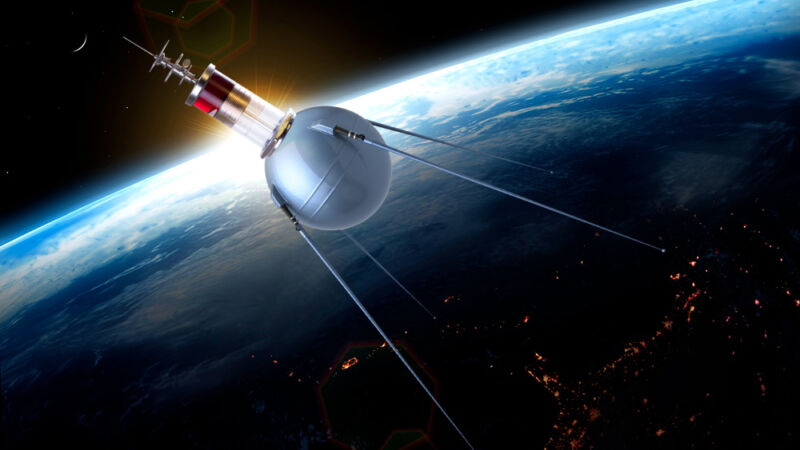
Russian President Vladimir Putin announced Tuesday that Russia is the first country in the world to grant regulatory approval for a COVID-19 vaccine—dubbed “Sputnik V.”
Putin claimed that one of his own daughters has already received a dose of the vaccine, according to reports from Moscow—though he didn’t note which daughter. Russian officials pledged to vaccinate millions within the month, starting with healthcare workers and teachers.
Little is known about Sputnik V, which was developed by researchers at the Gamaleya Institute in Moscow. There is no public data on the vaccine, let alone any published, peer-reviewed scientific studies. Public registration of two small clinical trials notes that Sputnik V uses a viral-vector-based design, but they suggest that it has only been tested in a small number of people. The trials, which began less than two months ago, each enrolled 38 healthy volunteers and have an estimated study completion date of August 15.
The World Health Organization, which tracks international COVID-19 vaccine development efforts, lists Sputnik V as being only in the first of three main clinical trial phases. Generally, Phase I clinical trials for vaccines are small—typically only involving dozens of people—and only assess the safety of the candidate. Phase II trials may involve hundreds of people and look further at safety, dosing, and the immune responses that the vaccine triggers, which may hint at the vaccine’s possible efficacy. Then there is the Phase III trial, which often involves tens of thousands of people and looks at whether the vaccine protects against infection and disease.
It appears that Russia has skipped Phase III—and possibly has not finished Phase II yet.
In a meeting Tuesday, Putin reportedly said that “of course, what counts most is for us to be able to ensure the unconditional safety of the use of this vaccine and its efficiency in the future. I hope that this will be accomplished.”
Dubious design
There may already be reason to doubt the efficacy of Sputnik V. The vaccine is a viral vector-based vaccine. That is, it uses two harmless adenoviruses to deliver parts of the pandemic coronavirus, SARS-CoV-2, to the immune system. This is a common design, but it’s one that has a notable pitfall.
Adenoviruses in humans tend to cause mild infections and common colds. For vaccine delivery, they’re usually engineered so they can’t replicate, making them even more harmless. Russian researchers further tinkered with the adenovirus so that it carries the genetic coding for SARS-CoV-2’s spike protein. The aptly named spike protein is a barb-like structure that juts out from the viral particle and is critical for infection. The spike protein grabs ahold of a receptor on human cells called ACE2 (angiotensin-converting enzyme 2), which allows the virus to get into the cell, take over, and churn out more viral particles. By delivering the spike protein in the adenovirus, researchers are hoping it trains antibodies and defensive immune cells to seek and destroy SARS-CoV-2 by recognizing the spike proteins.
Several other high-profile COVID-19 vaccine candidates use this basic strategy—but there’s a catch. Sputnik uses adenoviruses that commonly infect humans. In people who have already been infected with these common viruses, the vaccine may not prompt a strong immune response against the spike protein if immune cells recognize the adenovirus packaging and respond to it instead.
Crazy Russians
This appeared to be the case for a Chinese vaccine candidate developed in part by biotechnology company CanSino. The company’s human adenovirus-based vaccine prompted weaker immune responses to SARS-CoV-2 in people with existing adenovirus immune responses. And in some populations, up to 80 percent of people have had exposure to the human adenovirus the researchers used in the vaccine. Nevertheless, China is pushing ahead with the vaccine, which is now moving to Phase III trials and is already approved for use by the Chinese military.
Another high-profile vaccine developed by the University of Oxford and the international pharmaceutical company AstraZeneca also uses an adenovirus-based delivery. But they dodged the problem of adenovirus immunity by using an adenovirus that primarily infects chimpanzees. The vaccine candidate, which is largely considered more promising by experts, is already in Phase III clinical trials.
As for Sputnik V, Phase III trials are going to start soon, according to Kirill Dmitriev, head of the Russian Direct Investment Fund, which financially backed the vaccine’s development. Dmitriev, who spoke with a Moscow-based Washington Post reporter, also said that data from Phase I and Phase II trials will be published later this month—as the vaccine is being distributed to citizens.
He defended the country’s decision to distribute the vaccine before critical clinical trials, saying, “It’s not some crazy Russians using some crazy not proven stuff. Adenovirus existed with humans for thousands of years, and we made a bet on this proven platform because we understand that it takes very little time to develop, given the challenges.”
Last month, officials in the US, UK, and Canada accused hackers linked to Russian intelligence services of trying to steal information about candidate COVID-19 vaccines from academic researchers and pharmaceutical companies. It is “completely unacceptable that the Russian intelligence services are targeting those working to combat the coronavirus pandemic,” Dominic Raab, UK foreign secretary, said at the time. A spokesperson for Putin denied the allegations.
https://arstechnica.com/?p=1698161

